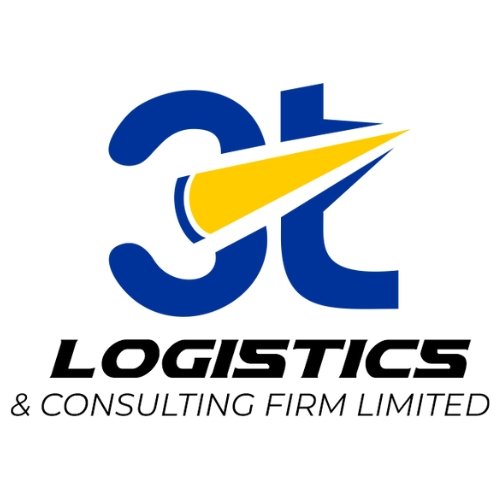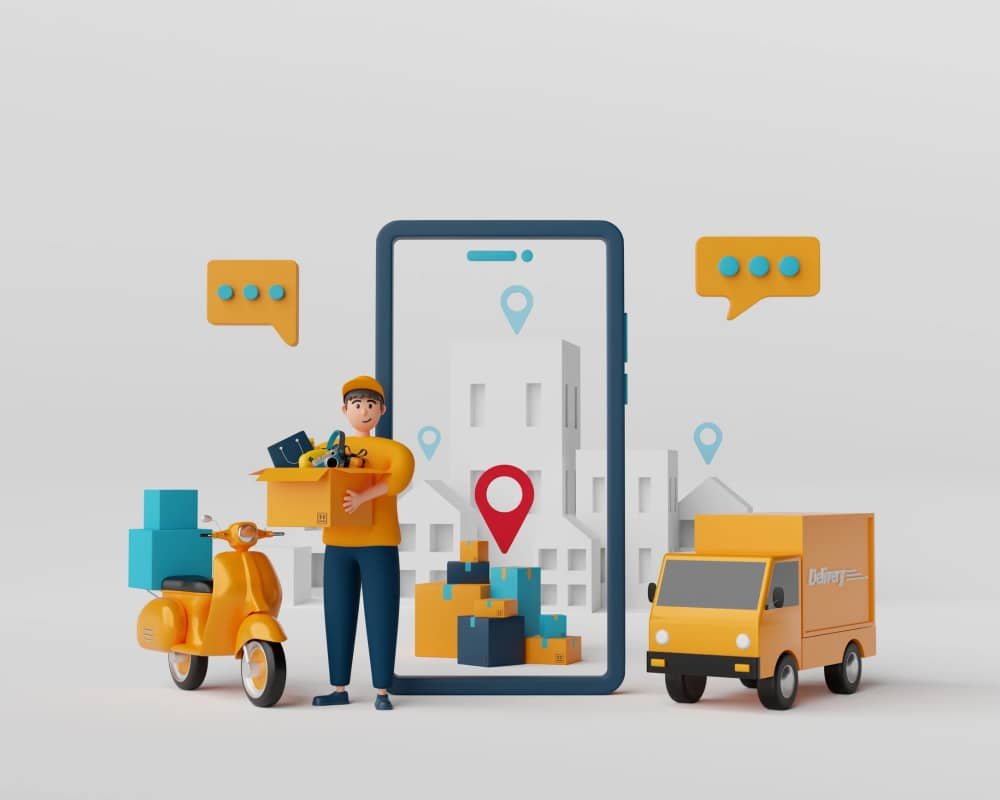Technological advancements are having a significant impact on the future of freight and logistics in Africa. Some ways in which these advancements are shaping the industry include:
- Improved tracking and visibility: With the use of technologies such as GPS tracking, RFID, and telematics, freight companies can provide real-time updates on the location and status of shipments, improving transparency and reducing delays.
- Automation and efficiency: Automated systems, such as warehouse management systems and inventory control software, are streamlining operations and reducing human error, leading to increased efficiency and cost savings.
- Predictive analytics: By analyzing data from various sources, companies can predict demand, optimize routes, and improve inventory management, leading to better decision-making and improved customer satisfaction.
- Drone and autonomous vehicle technology: The use of drones and autonomous vehicles for last-mile delivery is becoming more common in Africa, particularly in remote and hard-to-reach areas. This technology can help companies reach customers more quickly and cost-effectively.
- E-commerce growth: The rise of e-commerce in Africa is driving demand for faster, more efficient logistics solutions. Technology is playing a key role in enabling companies to meet this demand and provide better service to customers.
Overall, technological advancements in the freight and logistics industry in Africa are helping companies to overcome challenges such as poor infrastructure, high logistics costs, and fragmented supply chains. As these technologies continue to evolve, we can expect to see further improvements in efficiency, transparency, and customer satisfaction in the future.





84 Responses
trang chủ 66b đã xây dựng được niềm tin lớn từ cộng đồng nhờ chú trọng vào yếu tố an toàn và minh bạch trong mọi khâu vận hành. Với quy trình kiểm soát nghiêm ngặt và công nghệ hiện đại, trải nghiệm của người chơi luôn được bảo vệ tối đa ở mọi khía cạnh.
Bet thủ khi đặt cược tại nhà cái sẽ có khả năng khám phá ưu điểm nổi bật mà 66b apk sở hữu, tạo nên điểm khác biệt so với sân chơi khác trên thị trường. Điểm thú vị đầu tiên là bạn hoàn toàn được tham gia săn thưởng tại nhiều sảnh cược cùng lúc. Anh em hoàn toàn có thể lựa chọn đặt cược tại sảnh casino và theo dõi trực tiếp các trận đấu thể thao thú vị cùng một lúc.
I don’t think the title of your article matches the content lol. Just kidding, mainly because I had some doubts after reading the article.
FB88UnitedStates, betting across the pond, eh? Wonder if they got the same footy odds…time to investigate! fb88unitedstates
I don’t think the title of your article matches the content lol. Just kidding, mainly because I had some doubts after reading the article. https://accounts.binance.info/register-person?ref=IHJUI7TF
Your point of view caught my eye and was very interesting. Thanks. I have a question for you. https://accounts.binance.com/register-person?ref=IHJUI7TF
Your article helped me a lot, is there any more related content? Thanks!
Yo, just checked out 133betcom and it seems pretty legit. The odds look decent, and the site’s clean. Might throw a few bucks in and see what happens! Check it out for yourself 133betcom.
Can you be more specific about the content of your article? After reading it, I still have some doubts. Hope you can help me.
Spinning the reels on 777win66 tonight. Fingers crossed for that lucky 7! Anyone else playing there? I am feeling lucky, check it out 777win66.
Can you be more specific about the content of your article? After reading it, I still have some doubts. Hope you can help me.
7win9game… sounds catchy! It’s actually pretty fun once you get into it. The layout is clean and the games are solid. Check it out, you might like it: 7win9game
Your article helped me a lot, is there any more related content? Thanks!
Thank you for your sharing. I am worried that I lack creative ideas. It is your article that makes me full of hope. Thank you. But, I have a question, can you help me?
Can you be more specific about the content of your article? After reading it, I still have some doubts. Hope you can help me.
Just downloading the app from 88betapps and it seems to work smoothly, but haven’t fully looked into it as of yet. This helps if you want a mobile option for 88bet. If you want to use it, check it out 88betapps.
E aí, galera! Descobri o QQ88Asia1 recentemente e tô de olho nos jogos deles. Alguém já experimentou? Queria saber se a experiência é boa antes de colocar minha grana. Dá uma olhada: qq88asia1
Thank you for your sharing. I am worried that I lack creative ideas. It is your article that makes me full of hope. Thank you. But, I have a question, can you help me? https://accounts.binance.com/es-MX/register-person?ref=GJY4VW8W
Thank you for your sharing. I am worried that I lack creative ideas. It is your article that makes me full of hope. Thank you. But, I have a question, can you help me? https://accounts.binance.com/el/register?ref=DB40ITMB
Thanks for sharing. I read many of your blog posts, cool, your blog is very good.
phtaya10 https://www.phtaya10y.com
galaxybet https://www.playgalaxybet.net
I don’t think the title of your article matches the content lol. Just kidding, mainly because I had some doubts after reading the article.
Diwataplaylogin gets you straight in. Not bad if you want no fuss, just games. Login easily at diwataplaylogin
Okay, heard about ph78 from my buddies. Time to check out what all the fuss is about. Hope the games are good and the payouts are quick! Let’s see if it lives up to the hype. Fingers crossed! Give ph78 a try.
Okay, so I tried the phl63app, and ang ganda! The games are smooth, and I like how easy it is to navigate. Sana all ganito ka-ayos! Definitely giving it a thumbs up.
Your point of view caught my eye and was very interesting. Thanks. I have a question for you.
Yo, t128128, let me tell ya! They’ve got a respectable platform. Easy to navigate, and the betting odds seem alright. Plus points for the mobile site. Def worth a looksee: t128128
Checking in from tt128bet! A fairly solid choice for your betting needs. Not the flashiest site, but it does the job. Wide variety of games, quick load times. See them around tho: tt128bet
Alright, va88ads! Not gonna lie, I was expecting a bit more. The site’s alright, but the game selection isn’t hitting the mark for me personally. Give it a try and see if it’s your cup of tea: va88ads
Your point of view caught my eye and was very interesting. Thanks. I have a question for you.
Your article helped me a lot, is there any more related content? Thanks!
Trying to get my game on and needed the 777casinoapplogin. Super easy to use, thumbs up! You should login to 777casinoapplogin yourself!
Needed to login to 777bdlogin and it was quick and painless. Good to go! Let’s get started by clicking on 777bdlogin.
PHWWcasino, jumped in to see what’s up! Okay selection and no big issues here to report, happy to see it functions as expected. A good option if you wanna try: phwwcasino
I don’t think the title of your article matches the content lol. Just kidding, mainly because I had some doubts after reading the article. https://www.binance.info/register?ref=IHJUI7TF
Your point of view caught my eye and was very interesting. Thanks. I have a question for you.
Been playing on tmtplaycom for a while now and I’m still loving it. They keep the games fresh and the payouts are decent. Give it a whirl! Try your luck at tmtplaycom.
Okay lol646bet is seriously delivering on the betting action Got some good wins already Fingers crossed it keeps up Take a look lol646bet
Hey ever used ninogamingcom? Good user experience and great customer support Worth checking out if you want to game securely ninogamingcom
phtaya01 https://www.phtaya01.org
23phwin https://www.23phwing.org
iqjili https://www.liiqjili.org
Your point of view caught my eye and was very interesting. Thanks. I have a question for you. https://www.binance.com/lv/register?ref=SMUBFN5I
fk777 https://www.befk777.org
r85 https://www.pokerr85.com
Jilicc Online Casino Philippines: Premium Jilicc Slot Games, Easy Jilicc Login & Register. Get the Official Jilicc App Download Today! Experience Jilicc Online Casino Philippines! Enjoy premium Jilicc slot games with a seamless Jilicc login and register process. Get the official Jilicc app download today for the ultimate gaming experience and big wins! visit: jilicc
phmaya casino|phmaya app|phmaya download|phmaya slots|phmaya login Experience world-class gaming at phmaya casino, the premier online destination in the Philippines. Secure your phmaya login to access a massive variety of phmaya slots and exclusive rewards. For gaming on the go, complete your phmaya download and get the official phmaya app today for a seamless, mobile-optimized casino experience. visit: phmaya
Rich9 Login & Register: Best Online Casino Slots in the Philippines | Download the Rich9 App Join Rich9, the top casino online in the Philippines! Enjoy premium Rich9 slots, easy Rich9 register, and fast Rich9 login. Download the Rich9 app today and win big! visit: rich9
Alright guys, just hopped onto sn88bet and it’s pretty decent. Smooth site, got my bets in quick and easy. Might be my new go-to spot. Check it out at sn88bet!
Just spent a few hours on inbetcasino. Not bad, pretty good selection of slots and table games. Payouts seem fair so far. Giving it a thumbs up! Head over to inbetcasino to see for yourself.
Winnermxcasino is the name, winning is the aim! Just kidding. Decent casino, nothing mind-blowing, but solid. Worth checking out if you’re hunting for a new place to play. See for yourself at winnermxcasino.
Your article helped me a lot, is there any more related content? Thanks! https://accounts.binance.com/fr/register?ref=T7KCZASX
Having trouble accessing bet188? Try using bet188alternatif. It’s a good alternative if you’re experiencing issues. Hope it helps you log in smoothly. bet188alternatif
Yo, has anyone tried the 7j777app? I downloaded it the other day. It’s not bad, pretty straightforward. You can find it here: 7j777app
Hey guys, just wanted to say that I’ve been using bet3665 for a while now and it’s pretty solid. Good odds and easy to navigate. Check it out if you’re looking for a new place to bet. bet3665
I don’t think the title of your article matches the content lol. Just kidding, mainly because I had some doubts after reading the article.
Thanks for sharing. I read many of your blog posts, cool, your blog is very good.
Your point of view caught my eye and was very interesting. Thanks. I have a question for you. https://accounts.binance.info/register-person?ref=IXBIAFVY
Yo, Alanobet999’s the place to be! Been spinning those slots and hitting some sweet wins. Solid site, easy to navigate, and payouts are quick. Check it out for yourselves, you might just get lucky with alanobet999!
F12betbrazil, man, that site’s got some serious vibes! Easy to navigate, good odds, and the suporte ao cliente is actually helpful. Check it out f12betbrazil if you’re looking for a good time.
BingoPluscom, is exactly what it sounds like. If you are ready for some bingo, then bingopluscom is waiting for you.
Thanks for sharing. I read many of your blog posts, cool, your blog is very good. https://www.binance.info/el/register?ref=DB40ITMB
Your article helped me a lot, is there any more related content? Thanks! https://www.binance.info/fr/register?ref=T7KCZASX
26a is pretty solid. I had no problem navigating it when using it for game betting! Check 26a out, you will be surprised!
Alright alright… let’s have a go at ph363 hoping its not gonna let me down. I will give it a try from my side and hope I can win some prizes over here.ph363
Yo, Hotwinslotcasino is where it’s at if you’re looking for some reel action! They got a bunch of different slots and a few table games I’m fond of. Give hotwinslotcasino a spin, you might get something awesome.
Your point of view caught my eye and was very interesting. Thanks. I have a question for you. https://www.binance.info/en-ZA/register?ref=B4EPR6J0
Thanks for sharing. I read many of your blog posts, cool, your blog is very good. https://accounts.binance.info/register-person?ref=IXBIAFVY
[7607]WK777 Online Casino Philippines: Easy Login, Fast Register, and Top Slots. Get the WK777 App Download for the Best Gaming Experience! Experience the best at WK777 Online Casino Philippines! Use wk777 login or wk777 register to play top wk777 slot games. Get the wk777 app download now for fast wins and the ultimate mobile gaming experience. visit: wk777
[6361]WK77 Online Casino Philippines: Fast WK77 Login, Register & Slot Link. Download the WK77 App for the Best PH Gaming Experience. Experience the best PH gaming at WK77 Online Casino. Fast WK77 login and WK77 register for top rewards. Use the WK77 slot link or WK77 app download to start winning today! visit: wk77
Chasing those big wins with nesine altılı tahminleri? It’s a tough game, but someone’s gotta win. Good luck, and do your homework! Have fun betting: nesine altılı tahminleri
One less place to look for Altili guesses. Get your Nesine Altili guesses here nesine altılı tahmin!
Yo, just found keonhacai 5 net – seems like they got the goods! Checking out the odds now. Hope I win big! Check it out here keonhacai 5 net.
Can you be more specific about the content of your article? After reading it, I still have some doubts. Hope you can help me.
I don’t think the title of your article matches the content lol. Just kidding, mainly because I had some doubts after reading the article.
Your point of view caught my eye and was very interesting. Thanks. I have a question for you.
Thanks for sharing. I read many of your blog posts, cool, your blog is very good.
Thanks for sharing. I read many of your blog posts, cool, your blog is very good. https://accounts.binance.info/bg/register-person?ref=V2H9AFPY
Can you be more specific about the content of your article? After reading it, I still have some doubts. Hope you can help me.
Thank you for your sharing. I am worried that I lack creative ideas. It is your article that makes me full of hope. Thank you. But, I have a question, can you help me?
Thank you for your sharing. I am worried that I lack creative ideas. It is your article that makes me full of hope. Thank you. But, I have a question, can you help me?
Your point of view caught my eye and was very interesting. Thanks. I have a question for you.
I don’t think the title of your article matches the content lol. Just kidding, mainly because I had some doubts after reading the article. https://accounts.binance.info/lv/register?ref=SMUBFN5I